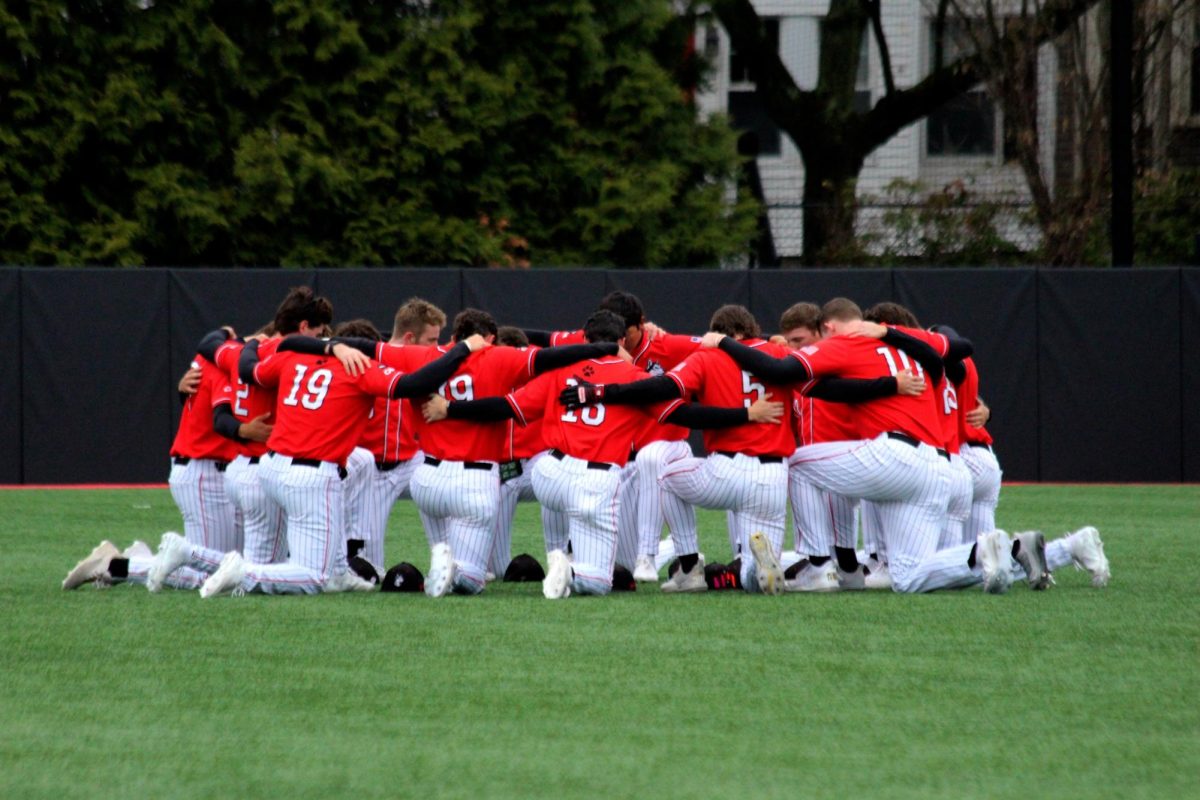Op-ed: Qualified immunity is unjustifiable
Qualified immunity excessively protects police officers.
November 14, 2021
The qualified immunity defense can be used by law enforcement and government employees for self-defense. Typically, qualified immunity is used to protect officers from civil rights claims requesting monetary damages resulting from constitutional violations. Recently, the U.S. Supreme Court reviewed two cases in which police officers were accused of excessive force and disorderly conduct.
In the Rivas-Villegas v. Cortesluna court ruling released in late October of this year, justices ruled in favor of this clause, suggesting that the officers were “entitled to qualified immunity.” Throughout the official Supreme Court document, numerous court cases were referenced, such as Tennessee v. Garner (1985), which held that in extreme cases involving significant threat of death or major physical injury, “it is not constitutionally unreasonable to prevent escape by using deadly force.”
According to the Court, the majority of their decisions are not based on policy preferences, and the U.S. Constitution “permits a balance between society’s need for order and the individual’s right to freedom.” Yet, the judicial doctrine of qualified immunity invalidates an individual’s right to prosecute officers who commit felonies while on duty.
Currently, officers are protected from liability in most civil rights cases due to this decision unless prosecutors can prove that a clearly established law was violated, typically by using similar cases as precedent. However, this has provided a legal loophole for officers, protecting them from most cases where accountability is necessary.
The doctrine of qualified immunity is designed to protect police officers from cases that seriously incriminate or defame them to ensure that they do not have to take any responsibility for the actions they take. This is unjust, and this system appears to have been implemented to protect oppressive officers from accountability.
A variety of civil lawsuits shield law enforcement officials from civil liability under this doctrine. Over time, it has evolved from cases where officers have destroyed property, killed innocent people they thought were suspects or stolen money. Last year, for instance, two businessmen accused officers in Fresno, California of stealing approximately $225,000, and the Supreme Court ruled in favor of qualified immunity, suggesting that their rights were not clearly constitutionally violated.
Presently, the Northeastern University Police Department, or NUPD, clarified the complaints process as soon as complaints were filed. According to Massachusetts public reporting requirements, campus police are required to compile a daily report consisting of “all responses to valid complaints received, crimes reported, the names, addresses of persons arrested and the charges against such persons arrested.”
This requirement creates great transparency within complaint reports and criminal activity, so it can be considered beneficial. Although this provides clarity in between arrests, there is no oversight enforcement, meaning officers can embellish their documents freely and without consequence.
Even so, private campus police officers are protected by qualified immunity since authorized supervision is not enforced in their complaint reports. In 2015, due to numerous mass shootings, police officers at Northeastern University began arming their officers with semi-automatic rifles to prepare for emergency situations on campus despite opposition from the Boston Police Department, or BPD.
The BPD responded to this announcement by suggesting that it was unwise for campus police departments to make these executive decisions while “nestled within city neighborhoods” without consulting them first. As Boston Police Commissioner Bill Evans told WGBH, equipping officers with semi-automatic rifles is not necessary because Northeastern falls within the BPD’s jurisdiction. However, NUPD officers still carry rifles.
NUPD released a response, saying that these rifles would only be deployed during “high-level emergency situations,” such as active shooters on campus. Yet, a lack of student and community involvement significantly impacts the integrity of the police force, lowering public confidence in the legal system.
Following this announcement, many staff members wrote a letter complaining about this decision, stating that the NUPD may “run the risk of making some members of the Northeastern community feel less safe.” The addition of semi-automatic rifles to campus police gear is completely unnecessary, causing reasonable concern for Northeastern community members, especially since the community had no input in this decision.
This is not the root of the problem — it’s just the tip of the iceberg. Since 1871, qualified immunity has been employed by federal law enforcement officials to ensure control over the systematic law enforcement structure, where police officers are immune to liabilities in court. Due to this, present law enforcement agencies like the NUPD are entitled to behave recklessly, which is not in the best interest of the communities they are sworn to protect.
This clause prevents accountability nationwide, which impacts civil rights cases significantly. Ultimately, if qualified immunity is changed or ended, it increases the likelihood that victims or their families will receive compensation from unjust state violence.
This is exemplified in the George Floyd case. The murder of George Floyd was a national tragedy that the country unified around to protest corruption in law enforcement. People did this by attempting to end qualified immunity. As a result, the George Floyd Justice in Policing Act passed in the U.S. House of Representatives in early March 2021, ending qualified immunity and banning chokeholds.
The Justice in Policing Act bans no-knock warrants in federal drug cases, mandates data collection on police encounters and creates a nationwide police misconduct registry, so officers responsible for misconduct can be held accountable. However, the U.S. Senate did not pass this bill, with Republican senators introducing a competing plan and releasing their dissenting opinions to the public.
In the event that this democratic bill becomes a law, it will inspire progress in law enforcement systems so that civil rights lawsuits and community involvement in impactful decisions can evolve for the better. Additionally, this ensures that police officers will face liability for criminal actions without protection from the courts, bringing justice for those whose civil rights were violated.
Haley Alphonse is a first-year journalism major. She can be reached at alphonse.h@northeastern.edu.







